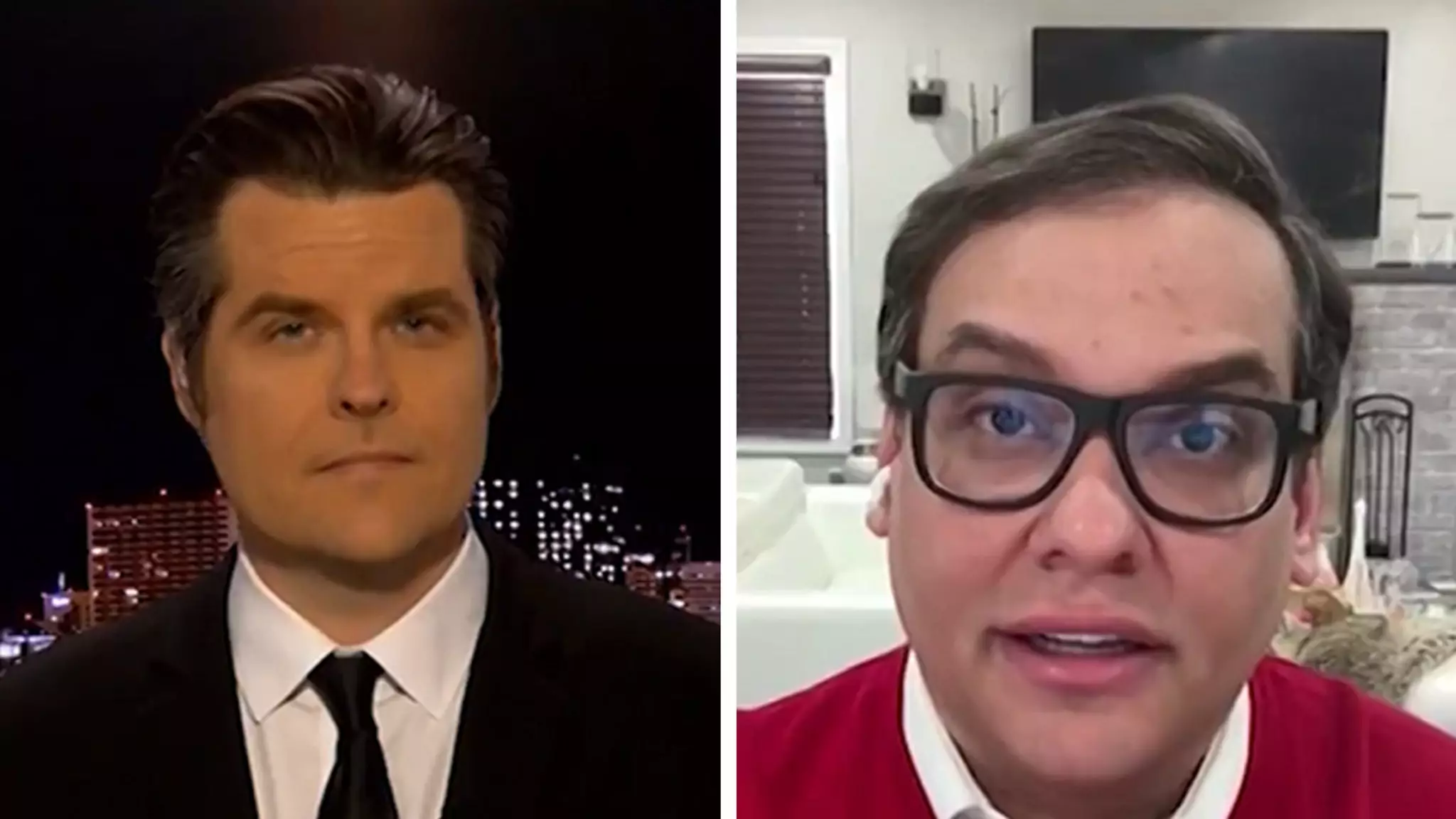In a dramatic turn of events, former Congressman George Santos has indicated that if sentenced to prison, he desires to be placed in solitary confinement. This unprecedented request came during his appearance on “The Matt Gaetz Show,” where he expressed his belief that his background as a high-profile public official places him in jeopardy if immersed in the general prison population. This assertion showcases a new level of self-preservation that is striking, even in the context of high-profile cases. Santos has been embroiled in a web of legal troubles, pleading guilty to serious charges that include fraud and identity theft. It raises questions about the nature of privilege and fear in America’s prison system.
Assessing the Claims of Danger
Santos claims that his vocal criticisms of notorious gangs, such as MS-13, make him a potential target for retaliation by incarcerated gang members. While there is certainly merit to the argument that individuals with contentious backgrounds might face risks in prison, the reality of Santos’ situation appears to be intertwined with his inflated self-image. His assertion that he is entitled to protective custody due to his former congressional status seems to echo a broader cultural narrative where power translates into privilege, even when the power in question is diminished by a fall from grace. The rhetoric surrounding gang violence and retaliation seems less about genuine concern and more about deflecting personal accountability.
Legal Consequences and the Witch Hunt Narrative
Santos describes his legal troubles as a “witch hunt,” a phrase that employs victimhood to divert attention from the substantive charges against him. He has pleaded guilty to only two charges out of nearly two dozen, which raises skepticism about the integrity of his actions and motivations. There is an inherent irony in a politician—already accustomed to leveraging narratives for political gain—now attempting to position himself as a casualty of a larger political conspiracy. This tactic may serve to humanize him in the eyes of some, but it risks alienating others who view his actions as reckless betrayal of public trust.
The Broader Implications of His Case
Santos’ case is symptomatic of a troubling trend in American politics—where accountability and personal integrity are often negotiated away in favor of narrative control. Many wonder if he would still seek isolation if he were facing the consequences of his actions without the crutch of victimhood to lean on. His upcoming sentencing could redefine not just Santos’ future but also how society perceives the consequences for those in power.
Moreover, the discourse around his incarceration emphasizes an ongoing dialogue about justice and safety within prison walls. The Federal Bureau of Prisons’ cautious approach to handling cases like Santos’ indicates a need for nuanced policies that balance inmate safety with accountability. The results of Santos’ sentencing will resonate beyond his personal fate, potentially influencing how similar cases are navigated in the future, distinguishing between genuine concerns for safety and self-serving maneuvers.
In navigating this complex web of narratives, Santos’ story serves as a cautionary tale—one that highlights the fragility of political reputation and the stark realities that await those who breach public trust.

